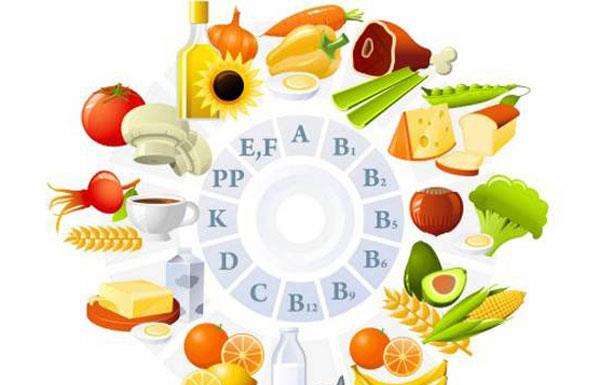Different from the first year of life, nutrition for children 1-3 years old does not need to pay too much attention to the amount of food consumed in each meal. However, mothers still have to ensure adequate supply of essential nutrients for their child's development. Sound too difficult, right?
To view this video please enable JavaScript, and consider upgrading to a web browser that supports HTML5 video
No longer having to eat their own special dishes, 1-3-year-old babies can join the family meal like a real adult. Babies in this period are also gradually forming eating habits. Therefore, a nutritious and rich diet during this period will be very important for children.
Depending on your child's weight, daily energy needs may vary. On average, babies need 100-110 calories per kilogram of their weight. For example, a baby weighing about 11 kg will need about 11x 100 (110) = 1100-1210 calories per day.

To ensure the development of the baby, mothers should ensure that the baby's daily diet is full of important groups of substances
1 / The importance of milk
No longer is the main source of nutrients for a child's development , but the calcium and vitamin D content in all types of milk is still very important for the formation of the child's bones and teeth. From 1-2 years old, to ensure the child's brain development, mothers should give them whole milk. After 2 years of age, in addition to milk, mothers can feed babies foods processed from milk to meet the baby's increasing calcium needs.
In addition to daily meals, children aged 1-2 years need about 200-300ml to meet their development needs. From 2-3 years old, your baby will need about 300-400 ml of milk per day. Although it is good and necessary for the development of the child, mothers should not give the baby more than 500 ml of milk per day! Not only does the baby have an excess of calcium, the protein content in the milk also makes the baby feel full, and does not want to eat anything else. Thus, the possibility of a baby being deficient is very high, mom!
2 / The role of protein
Protein plays an important role in the formation of cells, and is involved in the metabolism of substances in the body. Lack of protein is one of the leading causes of stunted growth and slow growth. Like calories per day, your baby's protein needs depend greatly on his or her weight. Accordingly, for each kilogram of weight, your baby needs about 2-2.5g of protein per day.
Protein content in some foods (in 100 grams):
Meats (pork, chicken, beef): 20-21 g
- Shrimp, crab, fish: 16-18 g
Eggs: 13-14 g
- Tofu: 9g

All about protein for babies There are babies who will always refuse meat or fish and the problem of protein supplementation becomes a challenge for mothers. If you are facing this problem, try to find yourself a solution through the suggestions below
3 / Fat, indispensable ingredients
In addition to contributing a part of energy to the daily activities of the body, fat also plays an important role in the formation and development of brain cells in children. In particular, in the period from 1-2 years old, supplementing the necessary amount of quality is a prerequisite for children's brain development.
Children 1-3 years old need about 33-45 grams of fat per day, equivalent to about 1, 2 teaspoons of cooking oil. Prefer plant-based fats, but don't cut your animal fats out either, mom!
4 / Starch
Starch is a major source of energy for children's daily activities. If not provided with the necessary amount of starch, children will become tired, drowsy, lack of vitality ...
From 150-200g of rice per day is enough for the baby's daily starch needs. If you feed your baby vermicelli and pho, mothers should cut down on their baby's rice demand. Excess starch easily leads to overweight and obesity in children, mothers should be careful.

Top principles of nutrition for babies As one of the "hot" topics that always get the attention of many mothers, nutrition for babies is directly related to both physical and mental development. However, if you want to give your child a healthy diet, first of all, you need to update the most basic knowledge. The following 5 things ...
5 / Green vegetables and fruits
In addition to the effect of adding a rich amount of fiber to help prevent constipation and intestinal diseases, green vegetables and fruits also help add a number of vitamins and minerals necessary for the development of children. .
So, mothers should add at least 50g of green vegetables and about 150g of fruit to their daily menu!
>>> See more discussions with related topics:
Nutrition for your baby
Suggesting some nutritious dishes for children 2-3 years old














